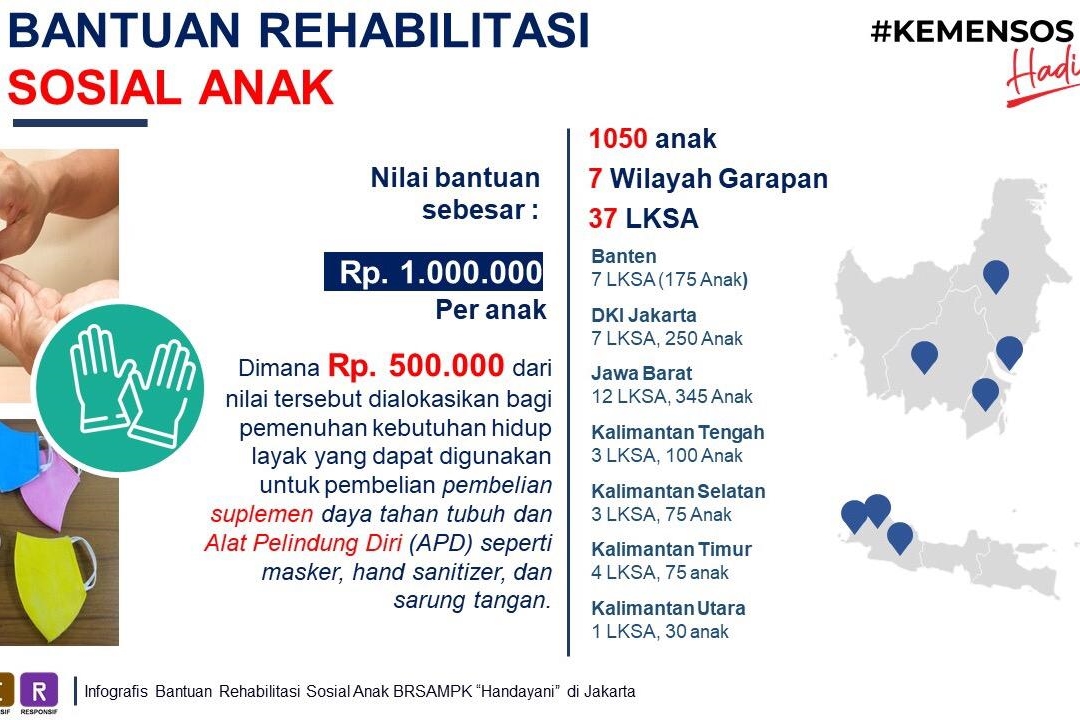"Handayani" Children's Center Will Soon Launch Social Rehabilitation Assistance to 1,050 Children

JAKARTA (April, 30th 2020) – “Handayani” Social Rehabilitation Center for Children in Need of Special Protection (BRSAMPK) in Jakarta will launch Children Social Rehabilitation Assistance (BRSA) to 1,050 children. This distribution is a follow-up to the instructions from the Director General of Social Rehabilitation, Harry Hikmat, regarding the acceleration of the distribution of social assistance as a precaution against the impacts of COVID-19.
Head of Jakarta “Handayani” Children’s Center, Neneng Heryani, said that this assistance will be given to the Beneficiaries who were assisted by Child Social Welfare Institution (LKSA), both those in the LKSA and those in family care.
“In the distribution of this assistance, we are working together with 37 LKSA partners in 7 areas in the coverage area of the Center, namely DKI Jakarta, Banten, West Java, Central Kalimantan, East Kalimantan, South Kalimantan, and North Kalimantan,” said Neneng in her statement.
“The criteria for beneficiaries are street children, Children in Need of Special Protection (AMPK), neglected toddlers, and Children in Need of Social Function Development (AMPFS). All of them are LKSA-assisted children,” she added.
Meanwhile, the amount of assistance provided is Rp1,000,000 per child. This assistance can be used to fulfill decent life, activities to increase children’s capabilities, to increase family capacity, and therapy.
“So, half of the assistance money can be used for medical necessities for COVID-19, such as buying supplements, masks, hand sanitizers, and gloves,” she explained.
Currently, the distribution process has reached the stage of opening a collective account at Bank Negara Indonesia (BNI) Sub-Branch Office (KCP), Ministry of Social Affairs. Neneng estimates that the assistance can be distributed in early May this year so it can be immediately used according to the regulations.
Neneng hopes that the acceleration of this assistance can help reduce the impacts caused by the COVID-19 pandemic, especially the impacts felt by children because they are part of a group who are vulnerable to being exposed to the coronavirus.
 English
English
 Bahasa
Bahasa
